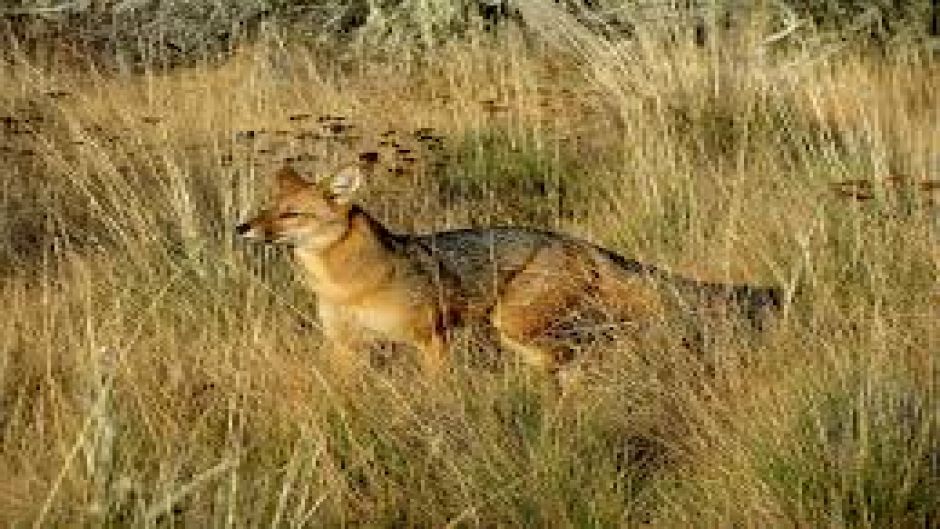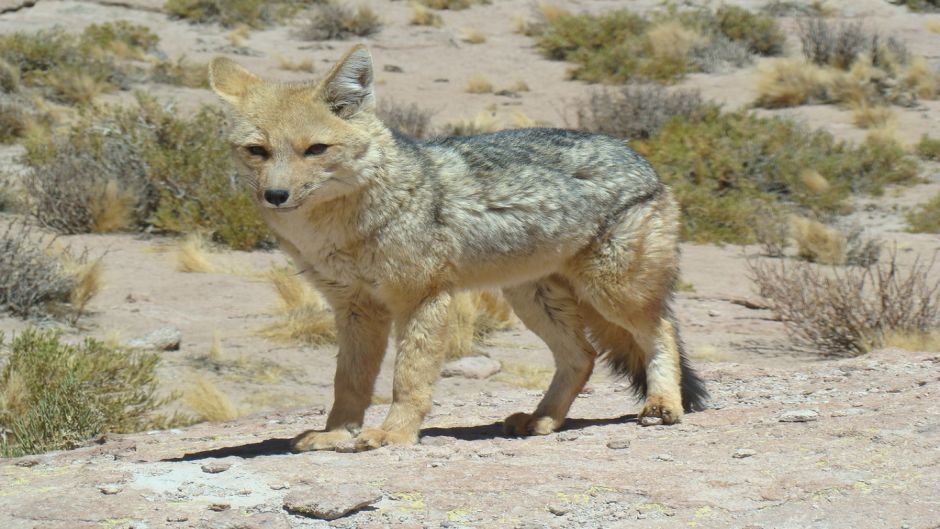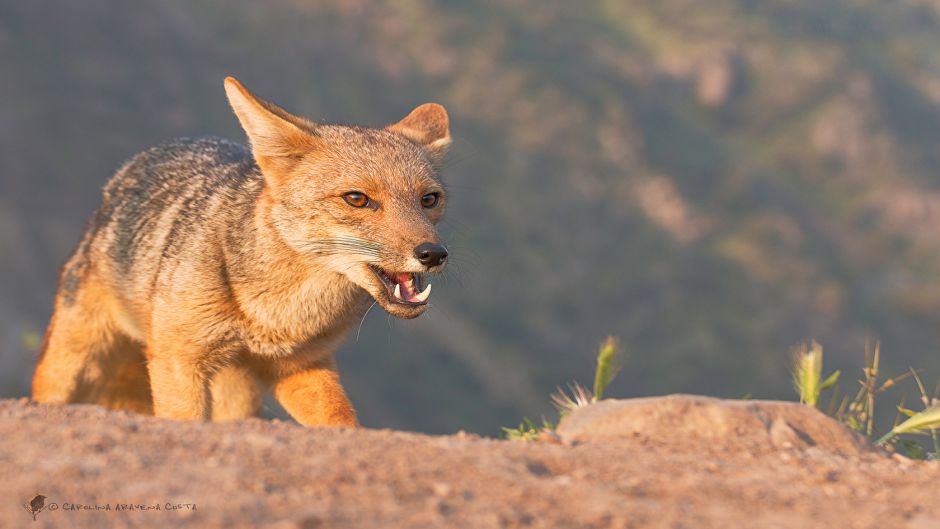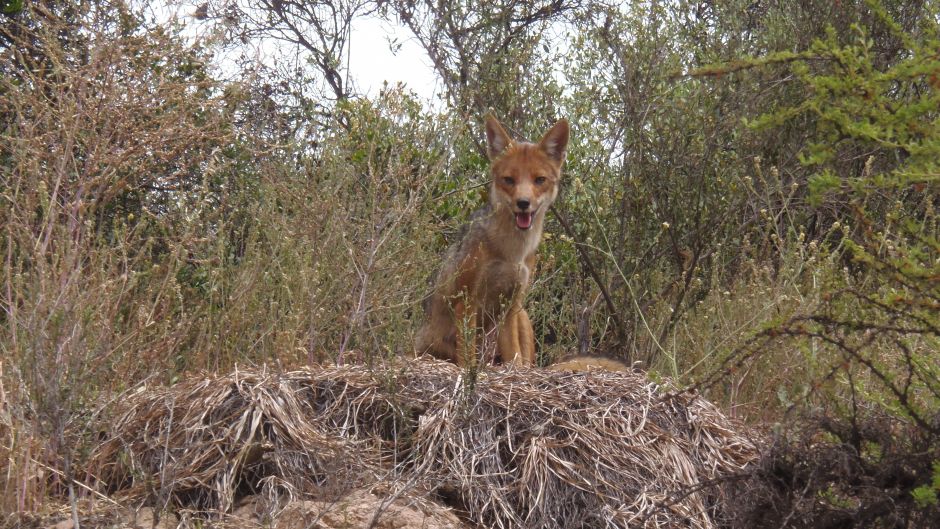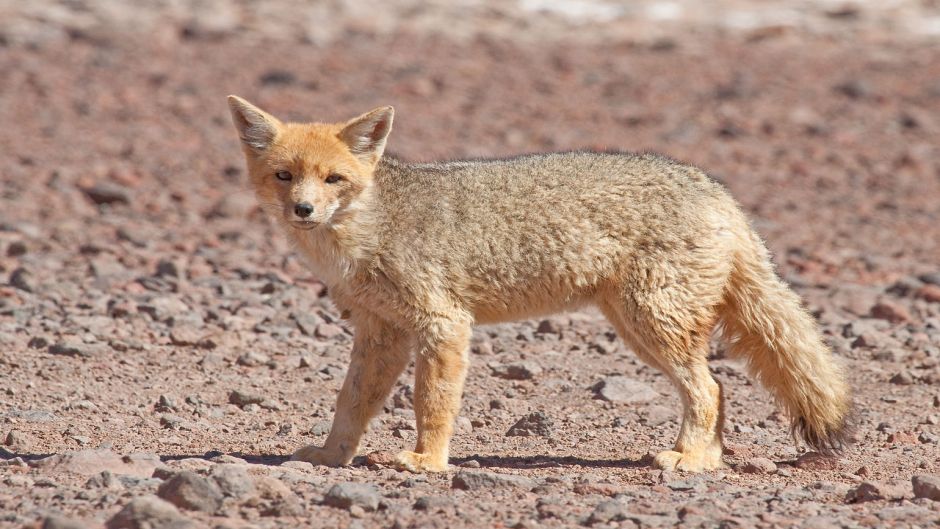Culpeo Fox, Guia de Fauna. RutaChile
Familia:
Canidae Genero:
Lycalopex Nombre Cientifico: culpaeus
habitat :
In its wide range of distribution the red fox uses many habitat types from rugged and mountainous above the tree line terrain, through deep valleys and open deserts, pampas scrub, sclerophyllous scrub, until deciduous temperate forests. It is found from sea level to altitudes of 4,800 m.
distribution :
P. culpeo is distributed in the high regions along the Andes of South America from the province of Nariño in Colombia in the north to Tierra del Fuego in the south. In low lying areas in the Pacific coast in the desert of northern Chile, near Valdivia south, and again it is found in Magallanes. Is then in the following countries: Bolivia, Chile, Colombia, Ecuador, Peru. P.: Six subspecies are recognized c. Andean (plateau); P. c. culpaeus (central Chile and west central Argentina), P. c. lycoides (Tierra del Fuego), P. c. Magellanica (Magellan and Patagonia), P. c. reissii (Andes of Ecuador); P. c. smithersi (mountains of Cordoba, Argentina).
threats :
It has been hunted due to conflicts with livestock and poultry breeding, also has been used strychnine for control. He has also hunted for their fur. In addition, predation by domestic and feral dogs have been important in some areas. When hunting pressure is reduced populations usually recover quickly. However, in Tierra del Fuego, where dwells P. c. Lycoides, this has not occurred even when reducing hunting pressure has been reduced from several years increase.
population :
In north-central Chile density of foxes in cordilleranos ind/Km2 drawers is 2.6 but the data point to total area (density) of the study decreases to 0.3 ind/Km2. Torres del Paine in the density reaches 1.3 ind/Km2, later in the same area estimation using telemetry noted ind/Km2 ecological density of 1.2 per km2
In all subpopulations have seen a rapid recovery of populations after a loss. However, unlike the case with the population of the subspecies inhabiting Tierra del Fuego, which is restricted to forests occupy the area south of the island and, apparently, hunting and the introduction of the gray fox have been the drivers of decline. Missing the subspecies P. C. lycoides would be very difficult natural recolonization.
Countries where lives Zorro Culpeo
ARGENTINA
CHILE
COLOMBIA
ECUADOR
PERU
